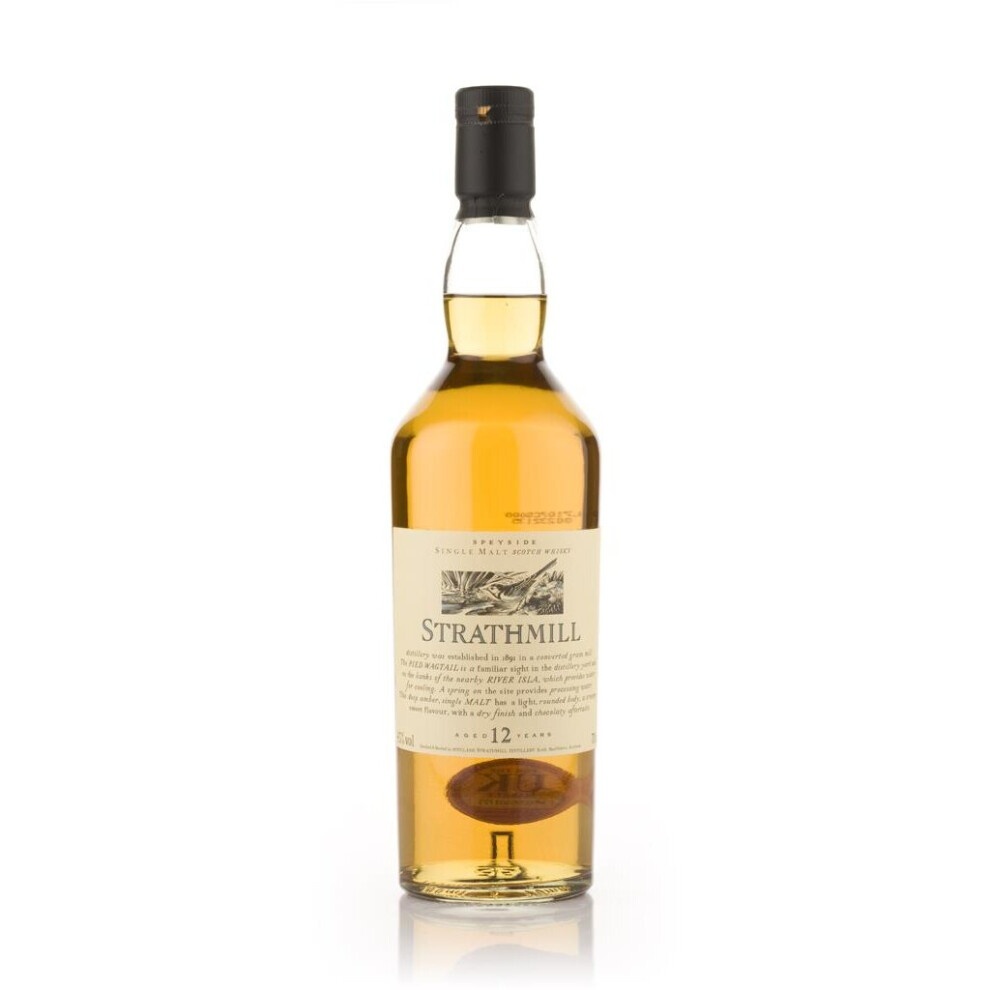A Bit of History
Strathmill was founded in 1891 and was originally named as Glenisla-Glenlivet – it followed the trend of the time for Speyside distilleries to include the name of Glenlivet as a mark of quality. The whisky boom of the late Victorian era saw the old corn mill in the Speyside town of Keith converted to a distillery.
W & A. Gilbey took control in 1895 and changed the name to Strathmill. They shared production between whisky and gin for several years, before concentrating solely on single malt. In 1962 a major change took place – W. & A. Gilbey merged with United Wine Traders (UWT) to form International Distillers & Vintners (IDV). UWT also owned Justerini & Brooks, the old famous London-based wine and spirits’ merchant.
Justerini & Brooks were producers of the J&B Rare blended Scotch whisky, so this merger began Strathmill’s long association with the brand. Capacity was doubled as the spirit became an integral part of the J&B Rare recipe. In 1972 IDV was purchased by Watney Mann, which in turn was acquired by Grand Metropolitan later that year.
Grand Metropolitan and Guinness merged in 1997 to form Diageo. They remain the current owners of Strathmill. Shortly after the merger, Diageo created the Flora & Fauna range of single malts to showcase some of their lesser-known distilleries. The Strathmill 12 years old was first launched into this series in 2001. Other releases are few and far between.
Background
For the second half of its life, the Strathmill distillery has been dominated by its association with the J&B Rare brand. It remains a key ingredient in the popular blended whisky and the signage at the distillery entrance conveys this. It is also used in other Diageo blends such as Johnnie Walker, and previously in the now-defunct Dunhill.
Prior to this, in the first half of its history Strathmill operated as a gin and whisky distillery. Previous owners W. & A. Gilbey, who owned the distillery for nearly 70 years, were primarily a gin company. However, they wanted to get in on the whisky game during the boom times of the 1890s and purchased Strathmill to achieve that.
The Geeky Bit
Strathmill has an annual production capacity of 2.6 million litres. The distillery is equipped with a nine-ton stainless steel mash tun and operate 10 mashes per week. There are six washbacks, which are also made of stainless steel, and run a fermentation time of 60 hours. There are four copper pot stills – 2x wash stills and 2x spirit stills – and these work in pairs.
Strathmill is one of the few single malt distilleries in Scotland to use purifiers on their spirit stills. This sits between the lyne arm and condenser. It allows lighter alcohol vapours through to be condensed, while pushing heavier alcohols back down into the still. This helps to give Strathmill its light and delicate style.
One To Buy | Strathmill 12 Years Old Flora & Fauna
The only official bottling by Diageo of Strathmill. The Flora & Fauna series celebrates their workhorse distilleries, and each is inspired by local animals and plant life. The Strathmill label features the pied wagtail, a small bird often seen on the River Isla near the distillery.
The whisky is light and delicate with initial notes of elegant vanilla, hazelnut praline and hints of dried grass. There is a subtle malty characteristics and further notes of sweet gingerbread and green apple. Hints of drying oak spice, warming cinnamon bark and a white pepper-like heat add depth and complexity.





